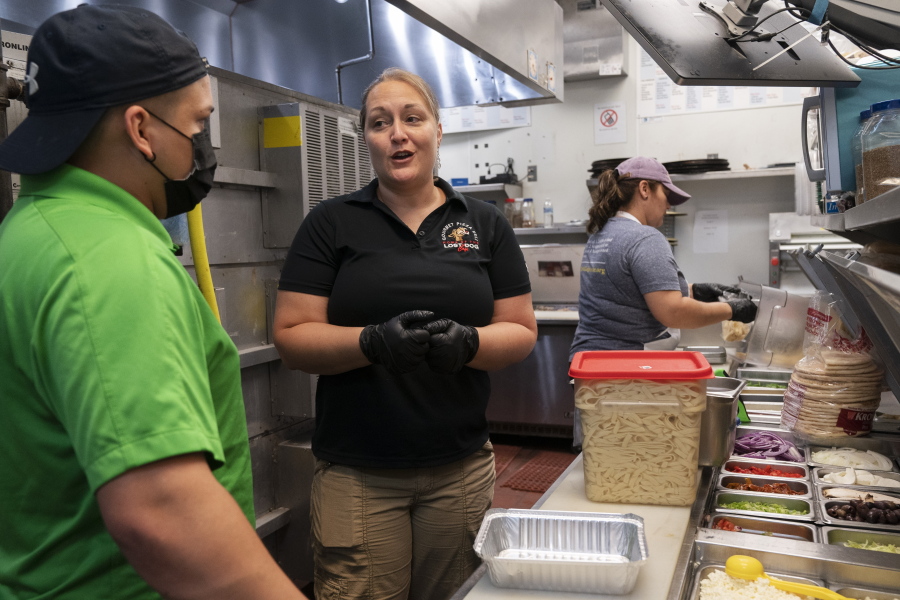NEW YORK — Landing a waitressing job or bartending gig at a Lost Dog Cafe in Northern Virginia had never been easy.
“Help Wanted” signs were a rarity, and half the chain’s staff stuck around for at least 10 years. The onset of the pandemic made job prospects even worse when Lost Dog had to temporarily shut down indoor dining.
But as vaccinated patrons rushed back to eat out and once-loyal workers moved onto new opportunities, the business began struggling in May to fill the roughly 20 percent in vacancies on its service staff.
To address the shortage, it did something it hadn’t done before: look to people without experience. It also started recruiting workers under 18.
Lost Dog is one of a growing number of companies that, in a desperation for hired hands, is loosening restrictions on everything from age to level of experience. Drug store chain CVS announced earlier in August it would no longer require a minimum high school degree to fill entry level spots at its stores. This year, it also plans to end its GPA requirement of 3.0 when it recruits on college campuses. Meanwhile, Amazon has stopped testing job seekers for marijuana.
The changing standards may have helped boost hiring this summer, even as many companies complained they couldn’t find all the workers they need. Employers added a hefty 940,000 jobs in both June and July, lowering the unemployment rate to 5.4 percent.
The trend to relax the rules started about three years ago when the labor market started to tighten. It accelerated this past spring when employers were caught flat-footed as Americans enthusiastically emerged from months of pandemic lockdowns, eager to shop and dine again. At the same time, workers were reevaluating their jobs and whether the long hours were worth the paycheck.
The perfect storm led to record job openings, which increased to 10.1 million in June from 9.2 million in May at a rate of 6.5 percent — the highest since the Labor Department started tracking the numbers two decades ago. People voluntarily leaving their jobs increased to 3.9 million from 3.6 million in May.
Employers dangled incentives like higher hourly wages and extra bonuses but still had trouble filling openings. Data from various sources show that they are now more willing to let go of some restrictions that in the past have shut out certain populations from the workforce.
Job-hunting platform ZipRecruiter, which scrubs 16 million job postings of all types of work, says the percentage of jobs requiring a bachelor’s degree fell from nearly 15 percent in 2016 to just over 11 percent in 2020. But that figure dropped even more drastically to 7 percent from January to June of this year. For the percentage of job listings requiring no experience, the figure went from roughly 9.2 percent in 2016 to 14.3 percent in 2020, and jumped again to 18.6 percent for the first six months of this year.
Experts say many of the restrictions were artificial barriers that perpetually kept out low-income workers, particularly people of color. Education requirements, for instance, tend to favor white workers over Black. Compared with 47.1 percent of white adults, just 30.8 percent of Black adults have earned some form of college degree, according to the Educational Trust, an educational nonprofit.
Delta Air Lines says 95 percent of its jobs in customer service no longer require a four-year college degree, up from 78 percent back in the first quarter of 2020.



